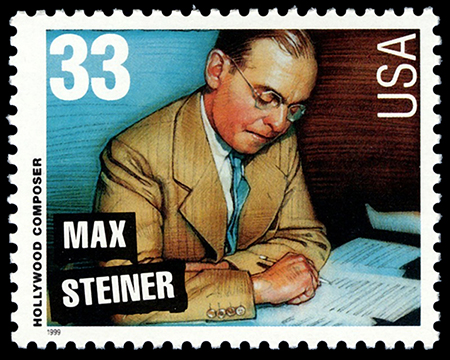
- Music
Max Steiner: The Father of Film Music
Max Steiner, composed the 1933 score for King Kong and was one of the true pioneers of the genre known as movie music. Steiner was awarded the very first Oscar ever given by the Academy of Motion Picture Arts and Sciences for his score for Life with Father.
normal’>King Kong could be said to be the most influential music score of all time because it completely established the grammar of film music, including the use of the leitmotif the device of the recurring musical theme often associated with Wagner and German opera.
Casablanca, Since You Went Away, Tomorrow Is Forever, The Charge of the Light Brigade, Mildred Pierce, Now, Voyager, Stolen Life and normal’>Gone with the Wind, which included the most popular of all his works, ‘Tara’s Theme,’ never won an Oscar or any other award.
Jezebel, a film that won Bette Davis an Oscar, Steiner scored the music to match exactly what the musical pitch of Davis’ voice was. Bette Davis once said, “He was my composer.” because she knew what value he brought to her films. When Steiner saw Ingrid Bergman in Casablanca or Vivien Leigh in Gone With the Wind, he was very affected by them, not just because they were beautiful women, but he really fell in love with those characters. He could not only be Humphrey Bogart and feel the intoxicating romance, but at the same time, he could also channel his incredible feminine side and write in the voice of the dying Bette Davis in Dark Victory, or normal’>Gone with the Wind, he stated: ‘It is my conviction that familiar music, however popular, does not aid the underlying score of a dramatic picture. I believe that, while the American people are more musically minded than any other nation in the world, they are still not entirely familiar with all the old and new masters’ works. Of course, there are many in our industry who disagree with my viewpoint’.


